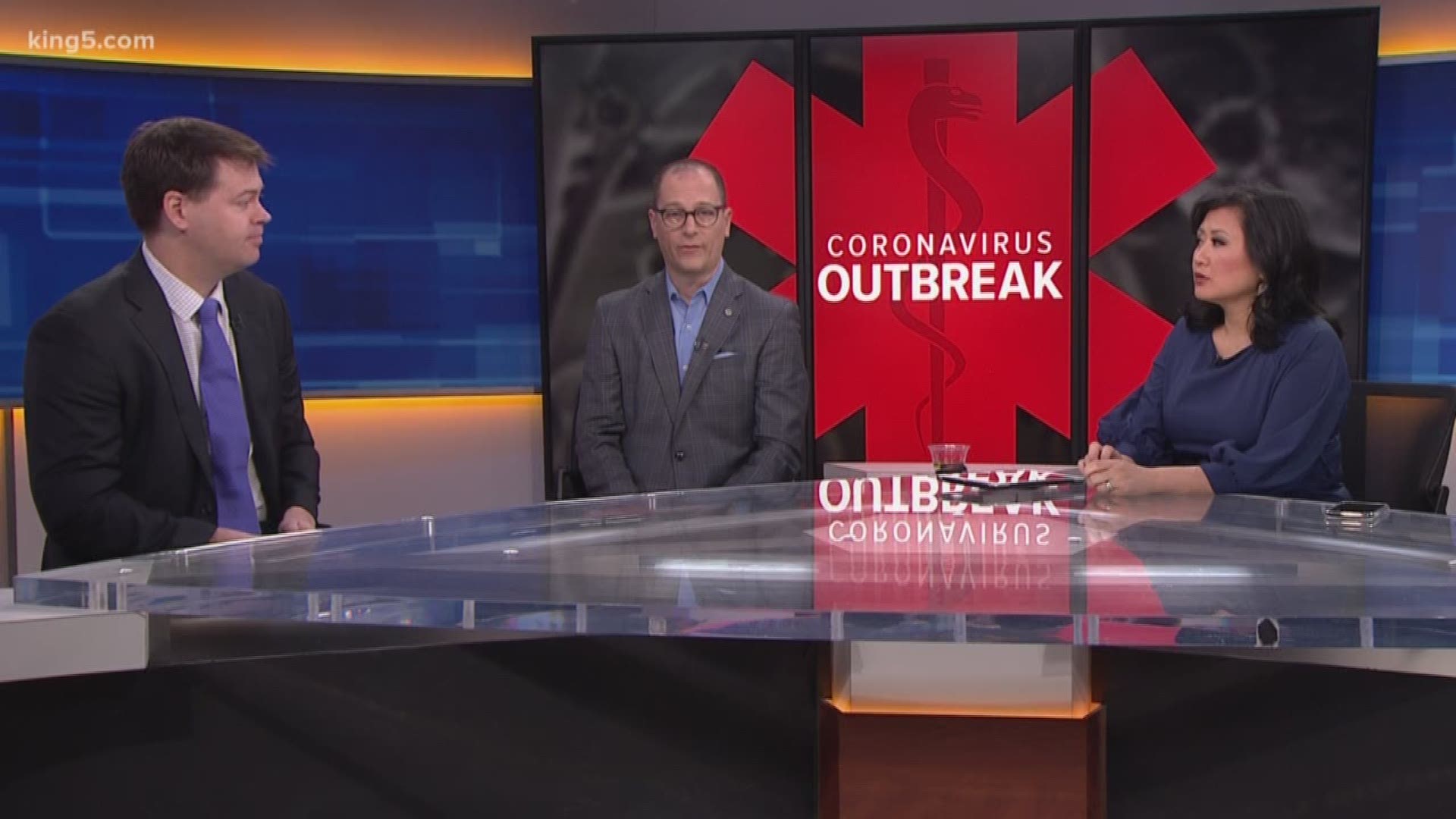SEATTLE — A viral illness that caused at least 17 deaths by Jan. 22 and sickened more than 500 people, including a man in Snohomish County, has many wondering how much of a risk the new coronavirus actually is.
Dr. Alex Greninger and Dr. Farshid Rafatnia answered the questions of KING 5 viewers as people returning from Wuhan, China - where the coronavirus originated - started getting screened at five major airports across the U.S.
Q: What's the risk of catching the new virus?
According to Dr. Rafatnia, the chance of catching it is "extremely low."
"Just by driving to the grocery store, which you don't consider to be a dangerous activity, you're at about 1,000 times higher risk of something bad happening to you just during that short drive than anything from this coronavirus. It's possible but highly unlikely.
"I don't think there's any cause for concern at this time."
Q: Can it be transmitted via surface contact?
There is still uncertainty about this virus, but Dr. Greninger said, in general, coronaviruses typically won't survive long on surfaces such as boxes.
Though these types of viruses can survive "a little better" in cold, wet environments like the Pacific Northwest, they usually only survive hours on surfaces.
So, even if you get something shipped from Wuhan, China, you're likely not going to get sick from coming in contact with a package.
Q: Is there a chance for the virus to mutate?
Dr. Greninger said when we think about viruses mutating, we should think about it in terms of adjusting to a human host.
The virus is believed to have originated from a seafood market in the central city of Wuhan, China. The CDC said anyone traveling to Wuhan should avoid animals, animal markets, and products that come from animals like uncooked meat.
If the virus does mutate, it will be small changes in proteins that allow it to bind to human receptors better. That, according to Dr. Greninger, doesn't mean the virus would become more severe - and could make it less severe.
At this time it's all conjecture with such little data, he said.
There are many known types of coronaviruses. Some human coronaviruses cause the common cold, while other types found in other animals have evolved into more severe illnesses such as SARS or MERS. So far, the 2019 novel coronavirus appears less dangerous and infectious than SARS. That illness also started in China and killed about 800 people.
Q: Should the public have been notified earlier?
Dr. Greninger said it doesn't appear the Chinese government waited too long.
"As they've known about things, they've let people know," he explained.
The CDC first began alert clinics on Jan. 8, not long after receiving notice.
It has been a much different response compared to the 2003 SARS outbreak, which was first reported in Asia and spread to more than two dozen countries in North America, South America, Europe, and Asia before being contained. A total of 8,098 people were reportedly sick and 774 died.
Q: Is the new coronavirus being blown out of proportion?
Dr. Rafatnia said when there is a new disease, doctors and scientists reflect on previous pandemics.
"So, we're always concerned and don't want another dangerous pandemic," he said. "That's why we're trying to buckle down from the state, figure out what this is, how it works, and how dangerous it really is..."
It may become a bigger story than it is, but it's better to take precautions than let something that could be very contagious and cause a high mortality rate get out of control.
"That's why we're so judicious," he added.

